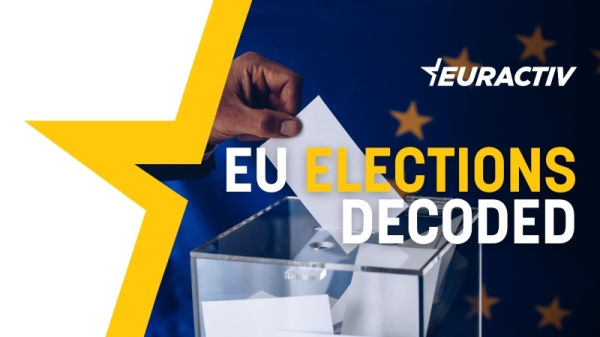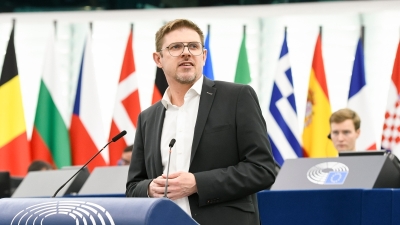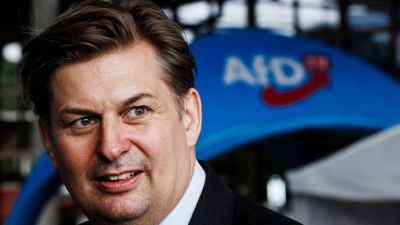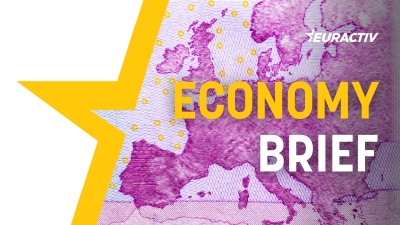EU parties competing with national politics as campaign kicks off

In today’s edition
- Do European parties and topics play a role in national campaigns? Barely, though they are trying hard.
- Bits from the week: right-wing to far-right ECR party wakes up to the electoral campaign; centre-right EPP called out for lack of transparency; new EU parliamentary alliance; study reveals what topics European parties should avoid when campaigning.
- Flash updates: Macron’s camp in alert mode as left parties move in on liberals’ space; latest projection show Romania’s far-right on the rise while Germany’s AfD drops; EU liberals to campaign against von der Leyen.
After a frenzy of party congresses, manifesto reveals and appointments of lead candidates, everyone is now ready to start the battle for June’s EU elections. The Green Deal, defence, and industry competitiveness will play a central role, but to what extent do the European parties and topics matter for the campaign?
As in any campaign, the voters will look out for their interest and the national level will matter the most. Meanwhile, European parties face an uphill battle to help their national members, who will have to shape their messaging strategy for a local audience.
Embracing the modern age, the Greens are betting on social media and a network of influencers and activists to amplify their message and support national campaigns.
A video on combating racism on social media was shared across the EU on 21 March, translated into 19 languages to reach out to citizens as a test case for their online campaign strategy.
However, the Greens will still send their lead candidates on the ground.
“I am looking forward to listening to the people all over Europe when sharing their thoughts, hopes, and wishes regarding what the EU should be doing to improve their everyday lives,“ Terry Reintke, one of the two Green lead candidates, told me.
Old-school campaigning
The European Socialists (PES) rely on old-school on-the-ground campaigning, sending their lead candidate Nicolas Schmit on a touring fever around Europe with tailored, country-based messages.
“My first event was with young people in Brussels. Then, on International Women’s Day, I was in Madrid standing with Spanish women and men for gender equality. The next day, I was in Helsinki showing solidarity with workers fighting for their rights,” the 70-year-old politician told me.
His next engagement is to meet young people and Ukrainian refugees in Nancy, France and talk about housing in Portugal.
“When you are a candidate for president of the European Commission, that comes with a responsibility to debate, to hold events, and to talk to voters about what you want to do, and who you want to do it with. The future of Europe is too important for candidates to run away from the campaign,” Schmit added.
Incumbent Commission President Ursula von der Leyen from the centre-right EPP is scheduling a series of campaign events across Europe based on local priorities, just like the Left with its leader Walter Baier, and the Liberals with their trio of lead candidates.
National politics always first
However, as much as the EU parties may try forcing their Spitzenkandidaten upon voters, let’s remind ourselves that national politicians are the ones making the difference: Raphaël Glucksmann, not Schmit. Alberto Núñez Feijóo, not von der Leyen. Lisa Schilling, not Terry Reintke.
And, whether it’s by pushing the EU elections to the background or fueling fiery campaigns, it seems like national political landscapes – as always – will determine how EU themes are utilised in member states.
In the Netherlands and Portugal, recent national elections and struggles to form a government have kept national parties from looking forward to the EU elections.
In Spain, a cascade of regional elections following national votes in August, has prevented the parties from entering the European campaign mode, with the main parties pushing for their national issues on the EU scene – like the infamous Catalan amnesty law – instead of bringing key EU topics to the home public.
Rest assured that Madrid will continue looking inwards, with a very short EU election campaign that will be subjugated to the snap elections called for controversial Catalonia on 12 May.
The EU elections campaign in Belgium will be subdued to the national one, as both take place on the same day, while in Poland, the political forces are embroiled in a fiery battle ahead of the local elections in April.
A stress test for governments
In some countries, however, the EU election campaign has started in earnest, though without any effervescent sense of Europeanism. With just 57% of citizens declaring they are interested in the EU elections, the brewing campaigns in France and Czechia seem to be used as a mid-term test for the governing parties.
In the case of France, where all parties have announced their priorities and the lead candidates are already all over the media, the EU elections are seen as a thermometer for the looming battle for supremacy between incumbent President Emmanuel Macron and surging far-right leader Marine Le Pen.
Similarly, the EU elections in Czechia will be used by the opposition parties as a stress test for the conservative government led by Petr Fiala ahead of parliamentary elections in 2025, as well as an attempt to contain controversial politician Andrej Babis and his party ANO, which is well ahead in polls.
ECR wakes up to the campaign. The conservative nationalist ECR party, so far silent on its campaign plans, is unveiling today a ‘charter of values’ that will feed into an electoral manifesto to be published later on, Euractiv has learnt. “Our aim is to rewrite our own constitution in terms of values so that during the European elections people will know who the European conservatives are and what they want for the future of the European Union,” the group president, Nicola Proaccini, told the unveiling event in Italy this Thursday (21 March). Despite not having an official lead candidate, ECR will also count on one yet unnamed representative to attend the European debates.
Liberals adopt new values, too. Keep an eye out on the Alliance of Liberals and Democrats for Europe this Thursday (21 March), as they are set to renew their 30-year-old official values.
WWF calls out centre-right EPP for neglecting transparency. After the European People’s Party (EPP) was the only force to decline to participate in an EU elections survey on climate and environmental priorities, the NGO World Wide Fund for Nature expressed “deep regret that the largest political group in the European Parliament today chose not to participate in an initiative that offers a timely opportunity to promote transparency and address voters’ interests in the EU 2024 elections.” Read the survey results here.
What not to talk about during the campaign. European leaders and parties should avoid campaigning on the EU’s flagship COVID-19 response, the Green Deal, and support of Ukraine, as the bloc’s successful performance on these crises is not recognised by many voters, a study from the European Council on Foreign Relations says. On the pandemic, only Portugal (56%) and Spain (42%) see the EU as having played a positive role in large numbers. On Ukraine, the EU’s role is viewed in a negative light by 37% of respondents. Read more on attitudes towards the far-right and migration here.
New EU parties alliance: ‘New Europeans’. All six non-affiliated delegations of the Parliament’s Renew Group created an association, with 22 members joining forces under the name of ‘New Europeans’. They represent one-quarter of the Group, in which they share seats with the other groupings of ALDE and EDP. Until now, those delegations were represented by Renaissance, Emmanuel Macron’s delegation. “This was not sustainable,” a source close to the matter said, adding they aim to “attract like-minded new members” after EU elections. “This association is a step further toward the re-organization of the Renew Europe family and will work towards a single Renew Europe party at one point,” the source added.
Flash updates
French far-left vows to take on bloc’s ‘warmongers’ ahead of EU elections. “If you don’t want war, vote for us”. Mélenchon’s party embraces the ‘peace’ narrative to get a poll surge, as it holds 7%.
Romania’s far-right snatches first place, Germany’s AfD drops: EU elections projection. Euractiv’s polling partner, Europe Elects, released the latest projections on the EU elections, showing changes in far-right national parties.
EU delegation of German far-right faces revolt before European Elections. Defying party leadership’s plea, members of Germany’s far-right AfD in the EU Parliament elected Christine Anderson as the new delegation chair.
EU liberals gear up to campaign against von der Leyen. European liberal forces will be warming up for an electoral battle against Commission President Ursula von der Leyen when they meet on Wednesday (20 March) to launch their joint “Renew Europe Now” electoral campaign platform amid poor performance at the polls.
Macron’s camp on alert as rival leftist EU list rises in polls. The joint EU election list formed by the French Socialist Party and leftist “Place Publique” led by Raphaël Glucksmann scored 13% in polls published on Wednesday and could be a cause for concern within Macron’s Renaissance camp that their core voter base is shifting to the left.
If you’d like to contact us for tips, comments, and/or feedback, drop me a line at This email address is being protected from spambots. You need JavaScript enabled to view it., or to Eleonora at This email address is being protected from spambots. You need JavaScript enabled to view it.
Read more with Euractiv




